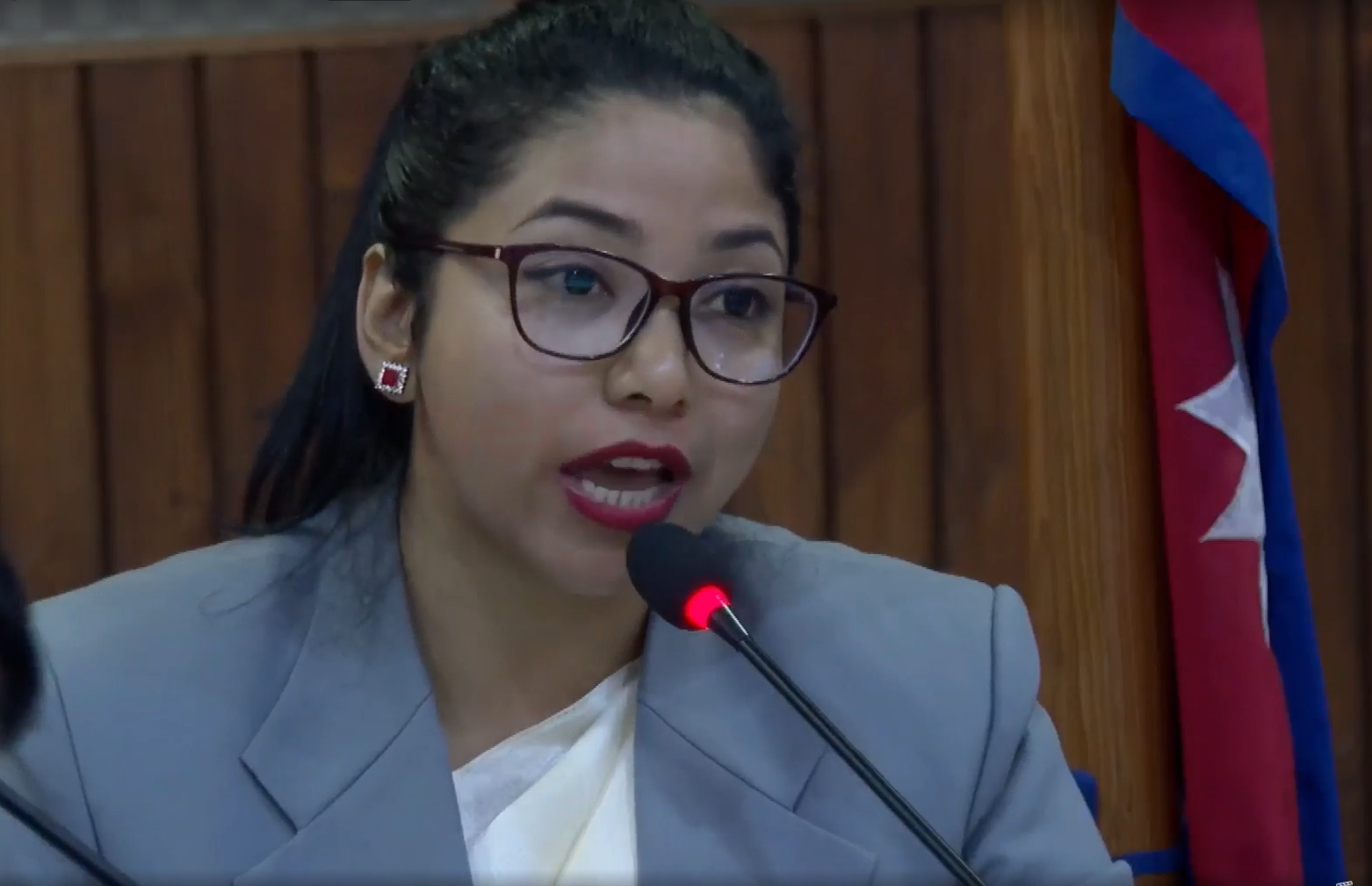Life is Beautiful – a Challenging Journey Filled with Uncertainties.

“Life is beautiful” is a phrase that encapsulates the idea that despite the challenges and uncertainties we encounter along our journey, there is inherent beauty and value in the experience of being alive. It acknowledges that life is not always easy, but it emphasizes the potential for growth, joy, and meaningful moments that can be found amidst difficulties. Life is an opportunity to explore, learn, and grow, but it also comes with risks and challenges that we cannot always control or predict. We have to embrace the uncertainty and enjoy the journey as much as the destination. It is a process of becoming who we are meant to be, but it also involves changes and transitions that can be difficult or painful. We have to trust the journey and learn from our experiences, even when we don’t understand them. Itis also a gift that we should appreciate and cherish, but it also has moments of sorrow and loss that we cannot avoid or escape. We have to accept the uncertainty and find beauty and meaning in every situation.
Life is often described as a challenging journey because it presents us with various obstacles, setbacks, and unexpected circumstances. We may face personal, professional, or health-related challenges that test our resilience and require us to adapt. These challenges can come in different forms, such as financial struggles, relationship issues, career setbacks, or health crises. They can disrupt our plans and force us to reevaluate our paths. However, within the challenges lie opportunities for growth, learning, and self-discovery. We develop strength, wisdom, and resilience through overcoming these difficulties. We learn to appreciate the small victories, celebrate our achievements, and find meaning in the face of adversity. The challenges we encounter shape us, help us discover our inner strengths, and allow us to become the best versions of ourselves.
Uncertainty is an inherent part of life. We cannot predict or control every outcome or circumstance that comes our way. Yet, it is within the realm of uncertainty that we find the potential for new beginnings, unexpected joys, and transformative experiences. Embracing uncertainty can lead us to take risks, step outside our comfort zones, and explore new possibilities. Life’s uncertainties and challenges also remind us of the importance of living in the present moment. When we recognize that life is fragile and temporary, we become more aware of the beauty that exists in the here and now. We learn to appreciate the simple pleasures, cherish our relationships, and make the most of the time we have. Ultimately, life’s beauty lies in the resilience, strength, growth, and connections we forge along the way. It is a constant journey of self-discovery, learning, and embracing the experiences, both positive and negative, that shape us into who we are. By recognizing and embracing the beauty in life’s challenges and uncertainties, we can navigate the journey with a sense of gratitude, purpose, and appreciation for the precious gift of existence.
Life Journey is Not Easy
Life is a challenging journey filled with uncertainties. At times, we may find ourselves confronted with near-death situations, such as incurable diseases, organ failure, or the loss of the main provider for our family. Disasters can strike, leading to the loss of our homes, belongings, and even loved ones. The ongoing pandemic, like COVID-19, has reminded us of the fragility of life as we witness the loss of family members and the disruption it brings to our lives. Indeed, every step we take in our life journey is not guaranteed to be safe and secure.
It is crucial to acknowledge the unpredictable nature of life and its temporary quality. By accepting this reality, we can better prepare ourselves mentally and emotionally to face the challenges that come our way. Despite the fragility and impermanence of life, it is important to find strength, resilience, and meaning in our experiences. During these difficult times, seeking support from our loved ones, communities, and professional resources becomes vital. Connecting with others who can empathize with our struggles can provide comfort, guidance, and a sense of belonging. Taking care of our physical and mental well-being through self-care practices can help us cope with the challenges we encounter.
Cultivating gratitude for the present moment and finding purpose in our actions can bring a sense of fulfillment and resilience. As we are aware of Life’s journey is not easy, embracing the reality of its fragility and temporary nature can help us appreciate the preciousness of each day. By focusing on what we can control, seeking support, and finding meaning in our experiences, we can navigate the unpredictable aspects of life with courage and resilience.
The ways to cope with uncertainty in life journey.
I think experiencing pain and setbacks in various aspects of life is always challenging and overwhelming. However, several constructive ways exist to cope with the pain and navigate the difficulties. I think, whatever, is and will be the situation, we have to face and cope with the situation.
I believe that prioritizing our survival should be the first step before extending help to others. It is important to ensure our well-being and existence, as without it, our ability to make a positive impact on life comes to an end.,
We may adapt the following coping mechanisms in uncertainty.
- Accept our own emotions first: We should allow ourselves to acknowledge and experience our emotions fully. It’s natural to feel sadness, frustration, anger, or disappointment when facing failure. We should permit ourselves to grieve and process these emotions. Suppressing them may prolong the healing process.
- Practice self-compassion: We should appreciate ourselves, our journey, the fellows we meet in our life journey or who are together with us at present or even who left us. We should treat ourselves well with kindness and understanding by avoiding self-blame and negative self-talk. In my opinion, recognizing failure is a part of life and does not define our worth as an individual. We should offer ourselves the same empathy and support we would extend to a friend facing similar challenges.
- Seeking support: In uncontrolled painful situations, if available, we should reach out to our support system, whether it’s friends, family, or a trusted mentor. Sharing our feelings and experiences can provide comfort and perspective. Surrounding ourselves with positive and understanding individuals can help you gain valuable insights and encouragement.
- Reflect and learn: None of the pain and pleasure has a quick fix, so it is essential to take time to reflect on your failures and analyze what went wrong. Identify the factors within our control and those that were beyond our influence. Learning from our mistakes can pave the way for personal growth and enable us to make better decisions in the future.
- Need to be Realistic, with a Set of Realistic Goals: We need to understand that patience is important to cope with obstacles. As noted,- “सनैशन्तासनैशन्तासनैपर्वतलङ्घनम्” in a Sanskrit phrase that translates to “Slowly, slowly, one can cross even the mountain.” This phrase conveys the idea that patience and perseverance are key to overcoming challenges and achieving success, even when faced with seemingly insurmountable obstacles. The phrase encourages a calm and steady approach to life’s difficulties. It reminds us that progress can be made step by step, even when the task ahead appears daunting. By taking our time, remaining focused, and persisting with determination, we can overcome obstacles and accomplish our goals. We should break down our long-term goals into smaller, manageable steps. This approach allows us to focus on smaller achievements along the way, boosting our confidence and motivation. Celebrate each milestone as a step forward, even if progress is gradual.
- Develop resilience: Resilience is the ability to bounce back from adversity. Cultivate resilience by developing a positive mindset, practicing gratitude, and maintaining optimism. Embrace challenges as opportunities for growth and we need to remind ourselves that setbacks are temporary and do not define our future.
- Seek professional help if needed: If we find it challenging to cope with the pain and failure on our own, we should consider seeking professional support. Therapists, counselors, or life coaches can provide guidance and help us develop effective coping strategies tailored to our specific situation. However, if there is no support available, still we need to think that we are not alone. During turmoil, pain, and helplessness, there may be times when we find ourselves lacking the support we desperately need. It can be disheartening to realize that the help we seek is not readily available. However, it is crucial to recognize that we have the strength within ourselves to cope with these challenging situations. It is natural to desire support from others, but relying solely on external sources may not always be possible or feasible. In such moments, we must find ways to navigate through difficulties independently. This requires resilience, self-reliance, and a belief that there is light at the end of the tunnel. Blaming others for the absence of support is not productive, as they too might be facing similar struggles or limitations. Everyone has their battles to fight, and circumstances may prevent others from extending the help we seek. Instead of placing blame, it is more empowering to focus on how we can navigate the situation ourselves. Finding inner strength and developing coping mechanisms is essential. This may involve seeking professional help, engaging in self-care practices, seeking solace in spirituality or personal beliefs, or leaning on our inner resources such as determination, perseverance, and resilience. It is important to remember that difficult times are not permanent. Just as day follows night, there is a possibility of brighter days ahead. By taking responsibility for our well-being and adopting a proactive mindset, we can work towards creating a better future for ourselves. While it is natural to feel disappointed or frustrated by the lack of support, channeling our energy into self-improvement and personal growth can be transformative. It allows us to develop skills, resilience, and a sense of empowerment that can carry us through challenging times. In doing so, we not only become more equipped to handle future difficulties, but we also inspire others who may be facing similar situations. By focusing on our personal growth, we can contribute positively to our own lives and, in turn, inspire and support others who may also be struggling. Instead of blaming, let us embrace the understanding that everyone has their journey, and by persevering through our challenges, we can become beacons of hope and strength for others.
- Take care of our physical and mental health: We need to engage in self-care activities that promote our overall well-being. If possible, we need to exercise regularly, eat a balanced diet, get enough sleep, and engage in activities that bring us joy and relaxation. Most important we need to prioritize self-care to maintain our physical and mental resilience during challenging times.
In my opinion, these are just common processes and may not apply to each of us, because everyone’s journey is unique, and setbacks are a natural part of life. To some extentadopting these coping strategies and maintaining a positive outlook, I believe that one can gradually overcome the pain of failure and continue moving forward on life path.
Failure is a part of life.
Failure is a part of life, and it can be painful. However, we need to think that there are always ways to cope with the pain of failure and alternative ways to move on. As noted above we need to acknowledge ourselves, our feelings and thoughts, and the actions we have been taking in our life trajectory. I think feeling sad, angry, or disappointed after a failure is fine. In such a case we should allow ourselves to feel our emotions, but don’t dwell on them.
When we are in extreme pain and emotion it is important to talk to someone we trust. Talking to a friend, family member, therapist, or counselor can help us to process our feelings and get support. In most cases, failure is the outcome of mistakes we made during our actions to achieve. So, it is necessary to find our own mistakes and learn from our own mistakes. We need to find out what went wrong. What can we do differently next time? Blaming ourselves or others will not solve the problem, so we should stop beating our selves up but need to try to learn from our own mistakes so that we will not repeat them. We also need to think realistically and set goals in a way that we can achieve again. In my opinion, taking care of ourselves is more important than anything else. Taking care of our physical and mental health will help us to cope with stress and improve our mood. Another important point to consider is- failure is not the end of the world. It’s just a setback. We should just dust ourselves off and keep going. Failure is not the end, but a valuable lesson on the path to success. It is the starting point that propels us towards achieving our goals and fulfilling our mission. Instead of giving up, we should embrace failure as an opportunity for growth and learning. It teaches us resilience, determination, and the need for adaptation. By persevering through setbacks, we gain the wisdom and experience needed to overcome obstacles and reach our aspirations. With the right mindset and a refusal to surrender, failure becomes a stepping stone towards ultimate success.
We need to always remember that I am not alone. This is the world and success, and failure are two parts of the same coin. Many people experience failure at some point in their lives. The important thing is to not give up and to keep moving forward.
Practical Strategies to Cope with Pain and Failure in Life.
It is often easier to provide comfort and consolation to others when they experience pain, failure, and frustration in life. However, when we find ourselves in similar situations, it becomes incredibly challenging to cope with our own emotions and struggles. This is because our personal experiences are deeply felt and can be overwhelming. It is important to acknowledge that it is normal to find it difficult to navigate through our hardships. Seeking support from others, practicing self-compassion, and allowing ourselves time to heal can help us cope more effectively with our pain and challenges.
As I noted earlier, the major strategy to cope with difficulties is to examine the truth. Being honest with ourselves about what happened and why. We should not try to minimize, rationalize, or justify our mistakes. Instead, we need to learn from them and accept responsibility for our actions. We talk a lot about dishonesty and the non-transparent behaviors of others; however, it is necessary to be honest and transparent with ourselves within and beyond. Our inner mind and self-reveal the truth, therefore, it is necessary to listen to our heart and mind and correct our actions accordingly. We should be open ourselves within and develop the willingness to acknowledge and express our feelings, both positive and negative. We should not suppress or avoid our emotions, as they can help us heal and grow. We should forgive ourselves and others who may have hurt us. We are emotional, sensual, receptive, and able to feel and make sense of our situation as well as our circumstances. Because of this reality, we need to permit ourselves to feel the pain. We should not numb (by using any external means) or distract ourselves from the pain with substances, work, or other unhealthy coping mechanisms. Instead, we need to allow ourselves to experience the pain and process it in healthy ways, such as talking to a friend, writing in a journal, or seeking professional help.
Another coping strategy is to commit to being open to the bigger lessons. In any case, we should not let failure define us or limit us. Instead, we need to see it as an opportunity to learn something new, improve ourselves, or discover new possibilities. We always need to be aware of the causes and effects of our actions and reactions to the past and ask ourselves how we can do better or differently next time. We need to ask ourselves how we can grow from this experience and what is the silver lining in this situation. Similarly, it is up to us whether we want to use learned lessons and willingness to change. We should not repeat the same mistakes or patterns that led us to failure. Instead, it is essential to make positive changes in our behavior, attitude, or environment that will help us achieve our goals and prevent future failures. Being flexible and adaptable to changing circumstances can bring positive impacts on our life trajectory.
Finally, I think practicing healthy coping skills and implementing them in life patterns can be a proactive way. We need to find activities that make us feel good and reduce our stress levels, such as exercise, meditation, hobbies, or spending time with loved ones. I am sure these strategies can help us to boost our mood, confidence, and resilience. By accepting the fact that no one on the planet is free from anxiety, fear, and sadness; we need to fill ourselves with humor. No matter what, life continues until our days are left to survive. Therefore, there is no need to take ourselves too seriously or dwell on the negative aspects of failure. Let us find ways to laugh at ourselves, together, and create love, respect, and honor within ourselves and beyond so that we can cope with stress and reduce emotional pain.
Conclusion
I acknowledge the multitude of challenges we might have been facing like near-death situations, family crises, financial struggles, and emotional turmoil. These difficulties undoubtedly test our strength and resilience. However, amidst the hardships, it is essential to remember that life is beautiful, even in the face of uncertainty.
The recognition of life’s inherent beauty lies in embracing the present moment, finding hope, and cherishing the precious experiences that come our way. Despite the trials and tribulations, there is still room for joy, growth, and happiness. I am hopeful that my opinion paper serves as a reminder that, despite the challenges, there is hope and potential for a fulfilling life.
By sharing our thoughts and reflections, we can contribute to the collective consciousness, inspiring others to appreciate the beauty of life and find solace amid their struggles. Our encouraging words can carry the power to touch hearts, instill hope, and encourage others to live their lives to the fullest. So let us feel, think, and behave in a way that every one of us is relative(Bashudhava Kutumbakam) and the world itself is a joint family (live and Let Others Live).
In this journey of life, as we navigate through uncertainties and confront hardships, we can shape our perspectives and determine the meaning we derive from our experiences. By embracing the belief that life is beautiful, we can find the strength to persevere, seek happiness, and make the most of every moment until our last breath. So, my opinion is that lamenting and blaming others for our failures reflects our actions. Instead, we should strive to fill our lives with joy, as our happiness has the power to positively influence our surroundings and ultimately contribute to a joyful society.
Let us hold onto that hope within us and inspire others to do the same. Together, let us embrace the beauty of life, cherish the present, and find happiness in the face of adversity. May our journey be filled with resilience, love, and a deep appreciation for the beauty that surrounds us, making each day a precious gift to be cherished.
Thank you!
Facebook Comment
latest Video
Trending News
- This Week
- This Month

















